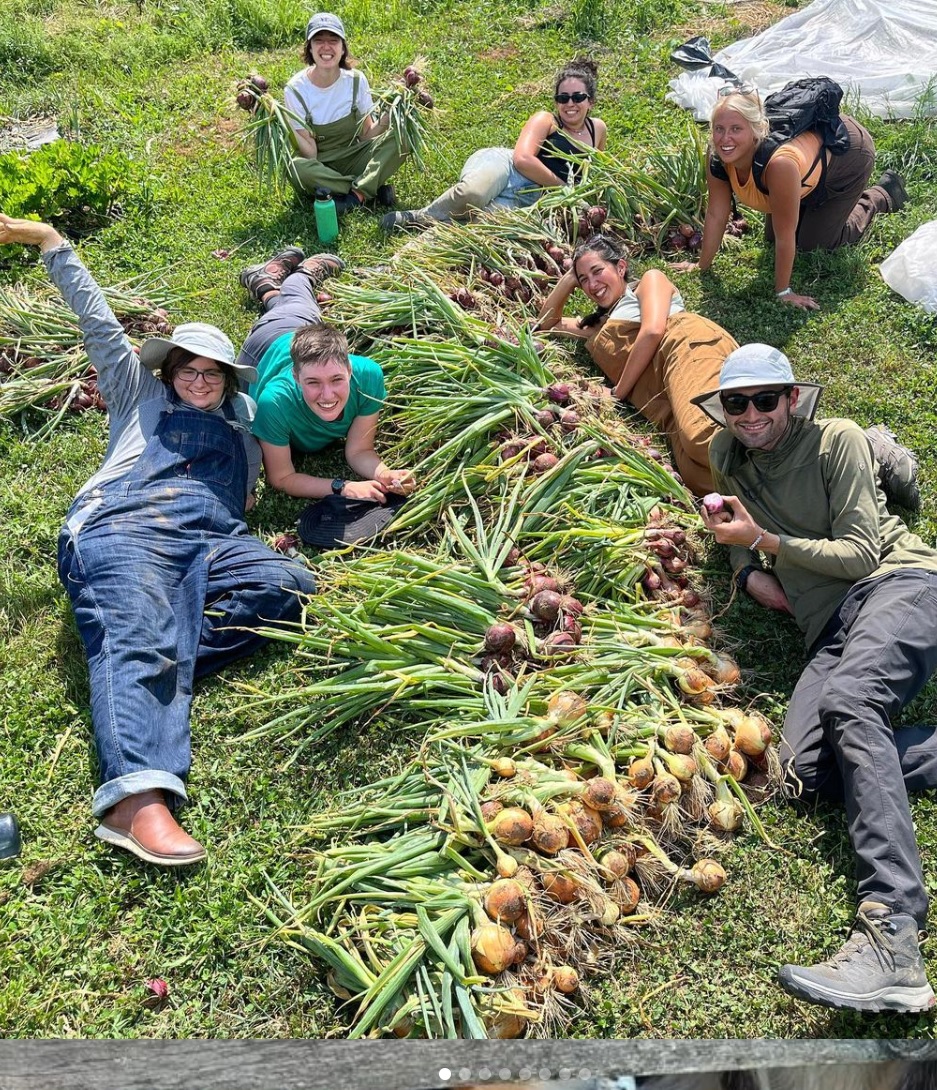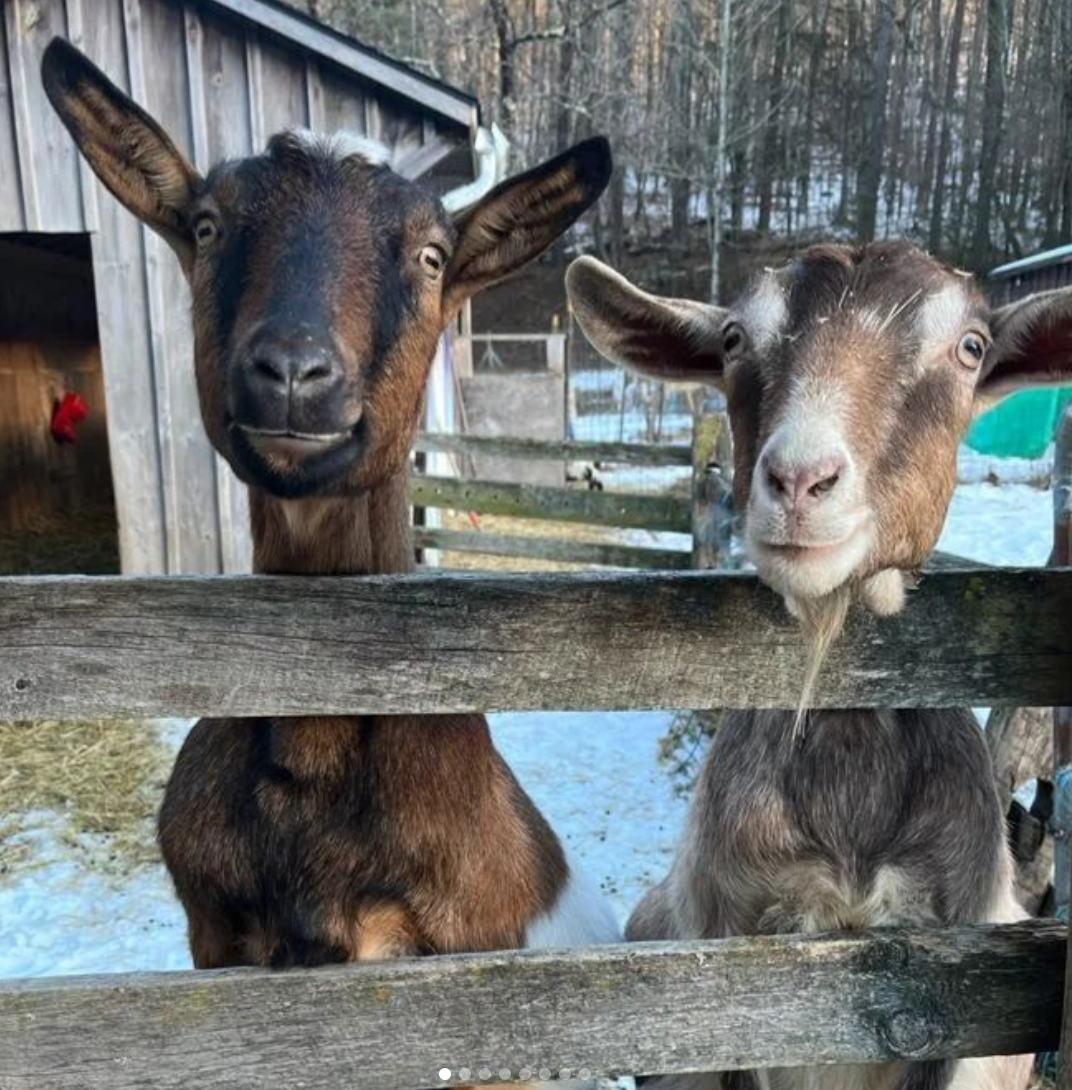
Adamah Farm is a regenerative homestead located at the Isabella Freedman Jewish Retreat Center in Falls Village, CT. It consists of 20 acres of farm fields, orchards, and pasture. Per Adamah:
"Adamah (ah-dah-mah) is the Hebrew word for earth, and adam (ah-dahm) is contained within it, which means person. So adam and adamah are inextricably linked, virtually one and the same. Earth and earthling; soul and soil.
At Adamah, we believe in the deep connection between people and planet, adam and adamah. Every day, we inspire and empower people to feel that connection, activate Jewish identity, build inclusive community, and work towards a more sustainable future. We are the link between our ancestors and our descendants, and we feel called to respond to today’s crises with the full power of the Jewish spirit."
Adamah Farm is a living, dynamic Jewish community. But it’s truly for everyone. It takes a holistic approach to both its farming operations and its way of creating community. In addition to offering a CSA (Community Supported Agriculture), they offer a 3-month educational fellowship where participants learn about the connection between Judaism and agriculture.
They demonstrate a commitment to social justice by offering their CSA on a sliding scale and allow people to purchase a share in installments, to ensure everyone has access to healthy foods.

Adamah’s vegetables and value-added products (e.g. sauerkraut, maple syrup, etc.) are certified organic, in compliance with USDA standards for organic foods, proving that they use zero manufactured chemicals or fertilizers. They go beyond the requirements of certification with regenerative practices that include:
- low- and no-till bed preparation
- crop rotation
- cover-cropping
- on-site composting
- drip irrigation
- maintaining habitat for pollinators
- rotational grazing, and
- growing a diverse mix of perennials and annuals.
Connecting with their Jewish Heritage
They know that their Jewish ancestors thought about the world in many of the ways we do now. For example, how do we feed the world without draining the planet of its resources? They also observe Schmita, the practice of letting the land rest and repopulate once every seven years, however, not in the traditional way. It isn’t practical if the rest of the world doesn’t observe it as well. Instead, at any one time, 1/7 of their land is at rest.
Each day, over 100 pounds of food scraps are composted from the retreat center dining hall. The compost is sufficient for the whole farm and it feeds their 50 laying hens. This is one of the ways they engage visitors in their farming practices, in addition to education and using the produce grown on the farm to cook nutritious meals in the dining hall.

Food Sovereignty
Food access is important to those at Adamah Farm. They want to make good, nutritious food available to everyone, even to those with lower incomes. To do so, they created a Food Access Fund, which anyone can donate to, where they donate the amount of food covered by the funds raised to local food pantries; and the kitchen at the retreat center utilizes produce grown on the farm.
Social justice is core to their work, though they are not particularly concerned with labels. Their approach to social justice is through a framework of living in a Jewish community and food sovereignty—a food system in which the people who produce, distribute, and consume food also control the mechanisms and policies of food production and distribution. Growing in sustainable, responsible ways is important to them. And they believe there is a long way to go before all humans are treated equally, and that it’s the work of all of us to make that happen. Farming is an important part of that work.



